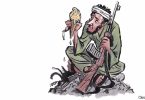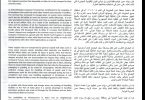The International Monetary Fund (IMF) has urged Gulf countries to make greater progress toward more diversified, dynamic, private-sector driven economies as a new era of lower oil prices continues to impact economic growth.
Latest figures released by the IMF forecasts that the Gulf Cooperation Council (GCC) region’s non-oil growth will be 1.8 percent in 2016 and 3.1 percent in 2017, much lower than the 7 percent average between 2000 and 2014.
It said the slowdown was due to the “dampening effect from fiscal consolidations and a broader weakening of private sector confidence in the face of lower oil prices”.
The IMF welcomed recently-announced diversification plans such as Saudi Arabia’s Vision 2030 which emphasises private sector development, commits to a balanced budget in five years, and envisages a partial privatization of Aramco, the world’s largest oil and gas company.
Oil exporters and importers alike have started to rationalise government spending and have cut back on their expensive general subsidy programs, for petrol, electricity, gas, and water, which have tended to benefit mostly the rich.
Despite these improvements, prices for these utilities are still well below international standards, so policymakers could go further in reforming their energy pricing frameworks, the IMF said.
Some countries have also started to find cost savings in their public wage bills, it added.
Masood Ahmed, IMF Middle East and Central Asia Department director, said: “These are all welcome moves and underline how committed these countries are to adjusting to the current difficult economic environment.”
However, he added that over the next 12 months, and well into the future, more needs to be done.
Ahmed added: “The economic transformations that are made now will have the potential to provide resilient and inclusive growth for generations to come.
“For oil exporters, this will include relying less on oil revenues while creating job opportunities for new labour market entrants in the private, rather than public, sector, while for oil importers, this will mean relying less on remittances. But, for both these groups of countries the goal must be an economic model that depends less on state spending and more on the private sector.”
He added: “Oil exporters are facing the difficult task of growing their economies in a climate of lower budget revenues and spending cuts. Therefore, the challenge now and into the future will be to find alternative sources of revenues and economic growth to maintain the level of prosperity many of them have become accustomed to.”
Regionally across the Middle East, North Africa, Afghanistan and Pakistan, the IMF said the slump in oil prices and ongoing conflicts continue to weigh on growth prospects.
The IMF’s Regional Economic Outlook for the Middle East and Central Asia projects that growth for the region this year will be a modest three-and-a-half percent, with little improvement expected in 2017.
It said sluggish economic growth is hurting progress in improving living standards. Structural transformations towards more dynamic private-sector driven economies, plans for which are being formulated in a number of countries, are needed to boost growth and create private sector jobs, the report said.
“The countries of the Middle East and North Africa region are still facing two of the world’s most pressing economic and geopolitical issues: the slump in oil prices and the intensification of conflicts,” said Ahmed. “To their credit, these countries have made progress in dealing with these challenges.”
Despite staging a recovery over recent months to reach more than $50 a barrel, oil prices — the key driver of growth for the region’s oil exporters — are projected to remain low over the coming years. The IMF projects prices to barely reach $60 a barrel by 2021, far removed from the highs of more than $100 a barrel just two years ago.
The report said non-oil growth outside the GCC is likely to be almost non-existent this year due to the conflicts in Iraq, Libya, and Yemen.
Original Article







